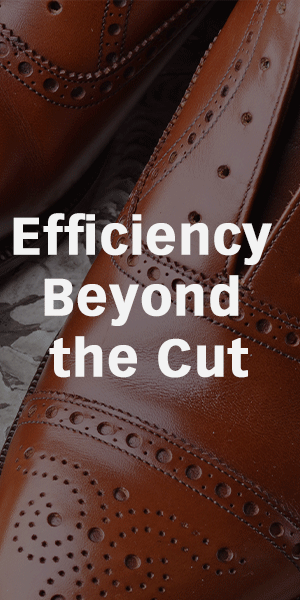There’s no business like shoe business

Whether it be to capture skills and expertise they feel is lacking from in their business, to gain a greater foothold in a specific geographical market, or simply to boost their revenue—outdoor companies and fashion groups have realised how beneficial adding a footwear brand to their portfolio can be. World Footwear takes a look at some of the most recent examples.
Apparel and footwear group VF’s portfolio is highly diverse, including brands from the outdoor, workwear and denim industry, a number of which offer at least some footwear. In the case of brands like Timberland and Vans, shoes are central to their business. VF frequently polishes its brand cabinet, making acquisitions that it feels complement its existing offering and offloading brands that no longer fit in with its strategy.
In June last year, it completed the acquisition of road, trail and lifestyle footwear brand Altra. Announcing the deal, VF said: “The Altra brand provides VF with a unique and differentiated technical footwear brand and a capability that when applied across VF’s outdoor footwear, direct-to-consumer and international platforms, will serve as a catalyst for growth within the outdoor and performance segment.”VF chief executive Steve Rendle said that adding Altra was part of their efforts to “reshape and evolve” the group’s portfolio in the pursuit of extra value. It also gives VF a stronger presence in the outdoor and performance sector, which he said is “a large and attractive growth space” for the company.
VF’s experience and prowess in the footwear sector is well documented, but one company with no background in footwear is outdoor apparel specialist Canada Goose, best known for its range of insulated jackets. In November, it announced the acquisition of outdoor and industrial footwear specialist Baffin.
Canada Goose plans to use Baffin, also headquartered in Canada, as a platform for building up its own range of footwear. At the time, Dani Reiss, Canada Goose president and CEO, said: “Baffin provides us with valuable infrastructure and know-how to start exploring the exciting global footwear category. This strategic and long-term investment is an important first step in Canada Goose’s footwear journey.”
Baffin, which employs around 80 people, will continue to operate as a stand-alone business, with its headquarters remaining in Ontario. Canada Goose has described the footwear brand as “a recognised leader in technically advanced, high quality products for adventure and work”.
It also pinpointed the brand’s president and founder Paul Hubner as a point of strength, referring to him as “an expert in insulated footwear construction and design”. What is also impressive about Mr Hubner is his commitment to personally testing his company’s products; he has carried out expeditions to the North and South Pole and to Mount Everest wearing Baffin gear.
Based in New Zealand, the motivation behind an acquisition by retailer and brand Kathmandu is to make an impact on the North American market. In March last year, it agreed to take over outdoor footwear company Oboz. Founded in 2007, it sells shoes for backpacking, hiking, travel and winter and outdoor pursuits. Its primary revenue stream is from wholesale sales to outdoor retailers in North America.
Kathmandu and Oboz had already been partners for over 10 years, with the former the exclusive retailer of the latter’s products in Australia and New Zealand.
“The Oboz acquisition provides us with the opportunity to accelerate our international growth, and diversify our product mix, geography, and channels to market,” said Kathmandu CEO Xavier Simonet, “Kathmandu and Oboz are well aligned in core principles of brand development, innovation, quality, customer service, and sustainability.”
He expressed admiration for Oboz’s success in North America, stating that it was “the right time to deepen the relationship between the companies”. This expanded partnership allowed Kathmandu to introduce its wholesale business in the region. The official launch took place at the Outdoor Retailer Winter Market in November.
John Connelly, founder of Oboz, remains president of the brand after its acquisition by Kathmandu, commenting: “Kathmandu is an outstanding success story in Australia and New Zealand. We are eager to launch Kathmandu in North America by leveraging the expertise and capabilities of Oboz. Kathmandu and Oboz share the same values of controlled distribution, long-term partnerships with authentic outdoor retailers, and sustainability.”
Fashion foot forward
A number of US companies have taken their cue from French luxury giant LVMH in an effort to grow their business. The Paris-headquartered conglomerate has built a portfolio of world-leading luxury brands from sectors as diverse as fashion, alcoholic brands and cosmetics. In terms of footwear, high-end men’s shoe label Berluti is the jewel in its crown.
Michael Kors is one group with ambitions to become a global luxury powerhouse. Perhaps unsurprisingly given the lucrative potential of the sector, its first move was into footwear, building on its already strong reputation in apparel, handbags and accessories. At the end of 2017, it bought UK-based luxury shoe brand Jimmy Choo for around $1.35 billion.
Among the reasons it mentioned for the purchase were a stronger position in the luxury segment (both men’s and women’s) and a more diverse product portfolio. In addition, it said it believed incorporating Jimmy Choo would give the group “greater exposure” in global markets, most notably in Asia where the brand has had a great deal of success in recent years.
At the time of the acquisition, Michael Kors put Jimmy Choo’s annual sales at $470 million and it expressed an ambition to grow this figure to $1 billion. It highlighted men’s shoes and the accessories category as target areas in this regard and also explained there was potential to grow the brand’s ecommerce operations and its retail footprint. Since the deal was completed, Michael Kors has on various occasions expressed its surprise about the contribution Jimmy Choo is already making to its overall revenue. This suggests the decision is already bearing fruit.
On a related note, Michael Kors has also agreed to purchase Italian luxury fashion house Versace. After completion of this deal, the group will change its name to Capri. The Kate Spade handbag and accessories label is already part of its portfolio.
The way in which the Tapestry group has gone about its expansion is similar to Michael Kors. Previously known as Coach Inc., it is also attempting to transform itself into a global luxury group. Just like its US rival, footwear was among the first sectors it targeted as it built its portfolio, acquiring Stuart Weitzman in 2015.
At the time, Tapestry (then Coach Inc.) CEO Victor Luis said the group would benefit from the “expertise in footwear development” of the Stuart Weitzman team. Previous attempts by Tapestry to make an impact on the shoe market have been largely unsuccessful so being able to tap into the brand’s vast experience in this area has been very beneficial. This no longer includes Stuart Weitzman’s eponymous founder, however, who stepped down as creative director of the brand in 2016. He remains its chairman.
Although not an acquisition, a new partnership between fashion label Karen Millen and Pentland Brands in October qualifies for inclusion in this article. It will see Pentland make shoes for Karen Millen, with the first collection set to be available for autumn-winter 2019-2020.
Karen Millen chief executive Beth Butterwick has said the group needs to grow the footwear and accessories side of its business in order to become the “destination lifestyle brand” that its customers want. Shoes and accessories once accounted for around 25% of its product mix but this figure has dropped since the turn of the century. She said Karen Millen decided to look for a footwear-producing partner because it recognises that it cannot “do all things well”.
She added that Pentland better understands sourcing, design and style in relation to footwear, as well as already having strong distribution channels. In addition, it will allow Karen Millen to offer its customers more styles, choice and availability.
“Pentland is the perfect partner, with a truly expert level of knowledge when it comes to footwear licensing and a long-standing record of working with brands to build their global presence,” Ms Butterwick explained, adding that Pentland would be given autonomy around design and sourcing.
Fashion brand Karen Millen has called on the expertise of the Pentland group in its pursuit of a more diverse footwear offering.
Credit: Karen Millen












